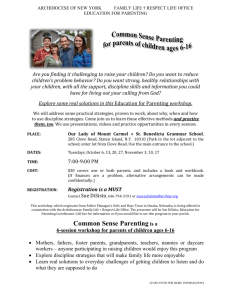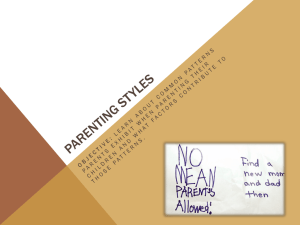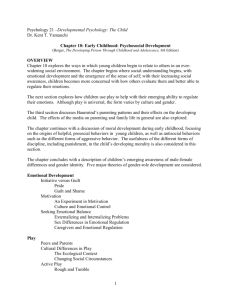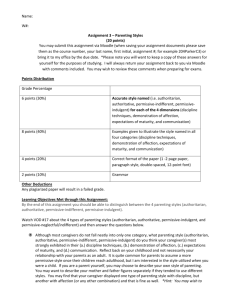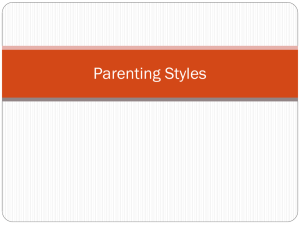Identifying Your Parenting Style
advertisement
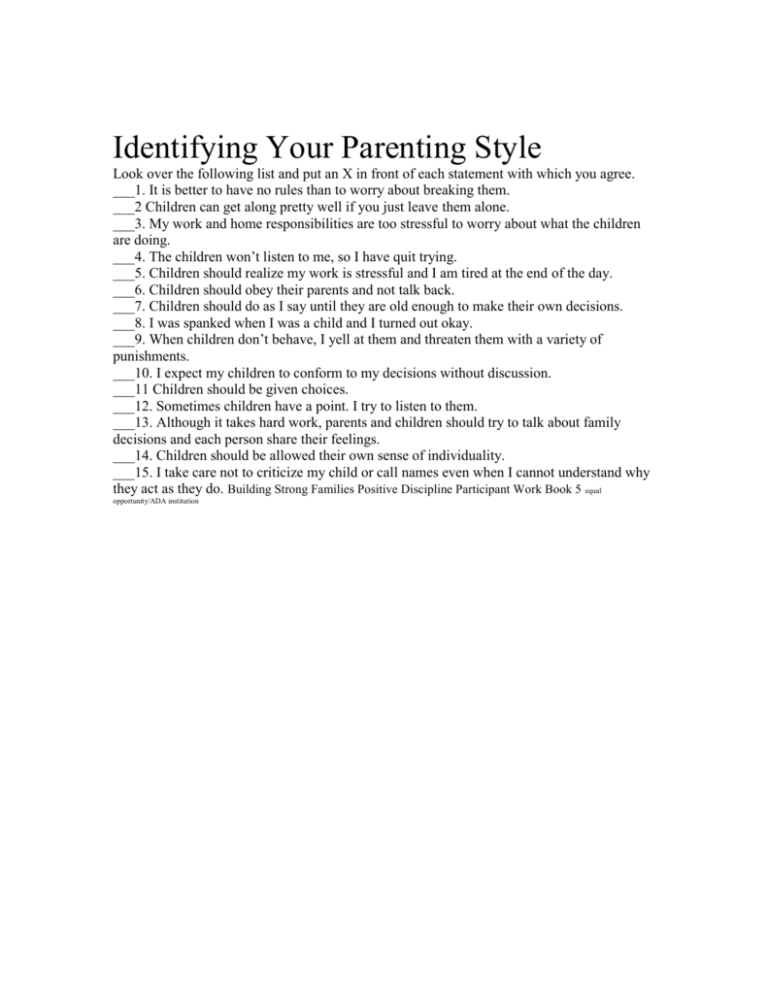
Identifying Your Parenting Style Look over the following list and put an X in front of each statement with which you agree. ___1. It is better to have no rules than to worry about breaking them. ___2 Children can get along pretty well if you just leave them alone. ___3. My work and home responsibilities are too stressful to worry about what the children are doing. ___4. The children won’t listen to me, so I have quit trying. ___5. Children should realize my work is stressful and I am tired at the end of the day. ___6. Children should obey their parents and not talk back. ___7. Children should do as I say until they are old enough to make their own decisions. ___8. I was spanked when I was a child and I turned out okay. ___9. When children don’t behave, I yell at them and threaten them with a variety of punishments. ___10. I expect my children to conform to my decisions without discussion. ___11 Children should be given choices. ___12. Sometimes children have a point. I try to listen to them. ___13. Although it takes hard work, parents and children should try to talk about family decisions and each person share their feelings. ___14. Children should be allowed their own sense of individuality. ___15. I take care not to criticize my child or call names even when I cannot understand why they act as they do. Building Strong Families Positive Discipline Participant Work Book 5 equal opportunity/ADA institution To get a clear look at how you score on the three styles, count the X’s under each family type and place the number in the table below. _______Parenting Style # 1 (Permissive) - (Questions 1-5) _______Parenting Style # 2 (Authoritarian) - (Questions 6-10) _______Parenting Style # 3 (Democratic/Authoritative) - (Questions 11-15) Which style did most of your X’s fall under? All parents are some of each type. You can identify the type you “mostly” are. PARENTING STYLE #1 Permissive Parenting Style #1 makes few demands, does little punishing, sets no rules, and avoids showing authority. The parent is uninvolved and spends little time and effort with the child. The parent complains that stress and work keep them from spending time with their children; drugs can be a reason for their lack of attention. CHILDREN FROM STYLE # 1 The children of this parent may lack self control, can be immature, and may be mean at home. These children tend to have low self-esteem and are easily frustrated. They may grow up to be school skippers and use drugs in their search for attention. PARENTING STYLE #2 Authoritarian Parenting Style #2 is demanding and strict, uses punishment and allows no choices. Parents value obedience, order, and discourage independence. These parents dislike having their orders questioned. They may use lots of physical punishment, yelling, and threats. CHILDREN FROM STYLE # 2 What kind of child comes from this discipline? Parenting Style # 2 often produces a child who lacks curiosity and creativity and has limited independence. These children may have difficulty with decisions and only follow the rules when adults are present. They may have low self esteem and can be mean. PARENTING STYLE #3 Authoritative The Parenting Style #3 parent, although not the perfect parent, has a better balance in discipline style, setting high goals, expecting good behavior, enforcing rules, and encouraging independence. Children’s rights are respected and choices given. There is good communication and listening and a more “give and take” arrangement. CHILDREN FROM STYLE #3 The children can usually make responsible decisions, are independent, have higher selfesteem and confidence, and are better able to control aggression.
